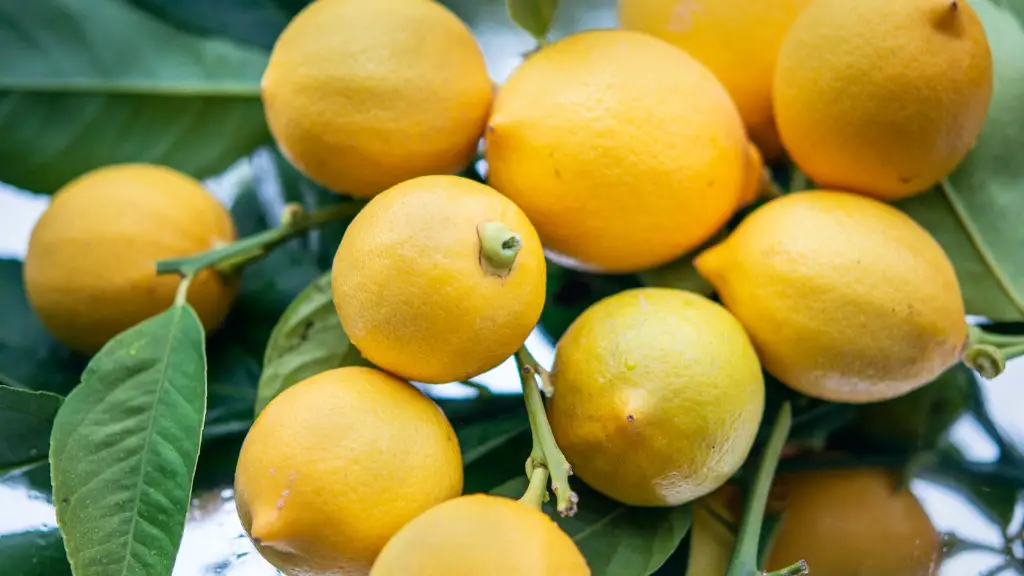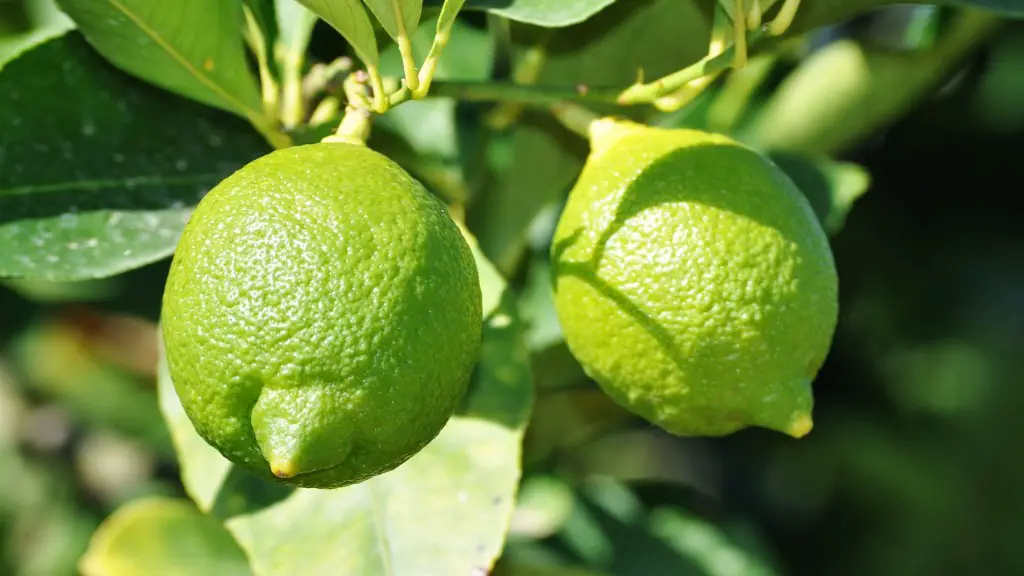When it comes to Meyer lemons, one of the most common questions is ‘when do they bear fruit?’ In general, Meyer lemon trees that are cared for properly will begin to produce fruit in two to three years. With the right growing conditions, a Meyer lemon tree can begin producing fruit as young as two years after planting. If a tree is planted in a location with colder temperatures and shorter days, it may take up to five years to start producing fruit. Typically, a Meyer lemon tree will produce fruit year-round, but the amount of fruit produced in the peak seasons may be more than it bears in cooler months.
Tree Care
Meyer lemon trees require full sunlight in order to bear fruit. Trees that receive less than eight hours of direct sunlight each day, or are planted in a location that does not have adequate air circulation, will have difficulty producing fruit. The soil for a Meyer lemon tree should also be well-drained and high in organic matter. It is important to water the tree accordingly, as too much or too little water can have significant effects on the production of fruit. It is also beneficial to prune the tree once every year in order to reduce excess vegetative growth and encourage fruit production.
Fertilization
Fertilization is key when it comes to producing citrus fruit. It is recommended that a Meyer lemon tree is fertilized once every two months. The ideal fertilizer should be high in nitrogen, phosphorus, and potassium and is applied directly to the soil. It is important to note that fertilization should only be done when the tree is actively growing, as fertilizing during dormancy can hurt the tree’s root system. Additionally, it is important to use caution when applying fertilizer as it can easily burn the foliage of the tree if over used.
Harvesting
Meyer lemons are harvested when they are fully mature, yet still firm. It is best to pick them when the rind has changed from a dark green or yellow-green to a bright yellow color. When harvesting, try to avoid squeezing or bruising the lemons, as this can cause them to become over-ripe or rot on the branch. After harvesting, Meyer lemons can be stored in the refrigerator for up to two weeks if kept unwashed and in a plastic bag.
Varieties
The Meyer lemon tree is the most common variety of lemon tree and can be grown in many different climatic regions. Other varieties of lemon trees include the Eureka, Lisbon, and Variegated varieties. While all of these varieties share many qualities, they also have unique characteristics. The Eureka variety is tolerant of colder climates and produces more fruit in the winter months, while the Lisbon variety offers continuous production of fruit year-round. The Variegated variety produces fruits with yellow-orange variegations, while the Meyer lemon produces a smooth, bright yellow fruit.
Pollination
Like other citrus trees, Meyer lemon trees require bees for pollination in order for them to produce fruit. If you are planting a Meyer lemon tree, it is important to make sure that there is enough bee activity in the area or to introduce bees of your own. If a tree is not being adequately pollinated, it will not produce fruit. Additionally, it is helpful to limit the use of pesticides and herbicides within a certain radius of the lemon tree, as these chemicals can also have an effect on bee populations.
Fruit Production
When cared for properly, a Meyer lemon tree can produce up to 100 lemons during its peak season. However, that number can vary depending on the location, climate, and the tree’s growing conditions. A correctly pollinated Meyer lemon tree should produce fruit reliably year after year and can easily become a reliable source of lemons in a short period of time.
Nutrition
Meyer lemons are a great source of vitamin C, providing up to 15% of an adult’s daily value for this vitamin. Meyer lemons are also a good source of potassium, magnesium, and calcium, which makes them very beneficial for the human body. Additionally, Meyer lemons are high in fiber, which can help regulate digestion and keep the bowels healthy.
Shelf Life
Meyer lemons can be kept in the fridge for up to two weeks if they are kept unwashed and in a plastic bag. Alternatively, they can be stored in a cool place that gets good air circulation for up to a month. Any longer than that and the lemons will begin to lose their flavor and nutritional benefits.
Preservation
Meyer lemon juice can be easily preserved for a longer period of time by freezing it. To do so, simply juice the lemons, pour the juice into ice cube trays, and freeze. Once frozen, remove the cubes from the trays and store them in a sealed container or plastic bag for up to six months. Frozen Meyer lemon juice can be easily used for homemade lemonade, dressings, and marinades.
Usage
Meyer lemons are commonly used in a variety of culinary applications. The juice is often used to brighten up salads, sauces, and drinks, while the zest can be used to add a citrusy flavor to baked goods and desserts. Additionally, Meyer lemons are great for making homemade jams and jellies, as the flavor is more subtle than other varieties of lemons.

